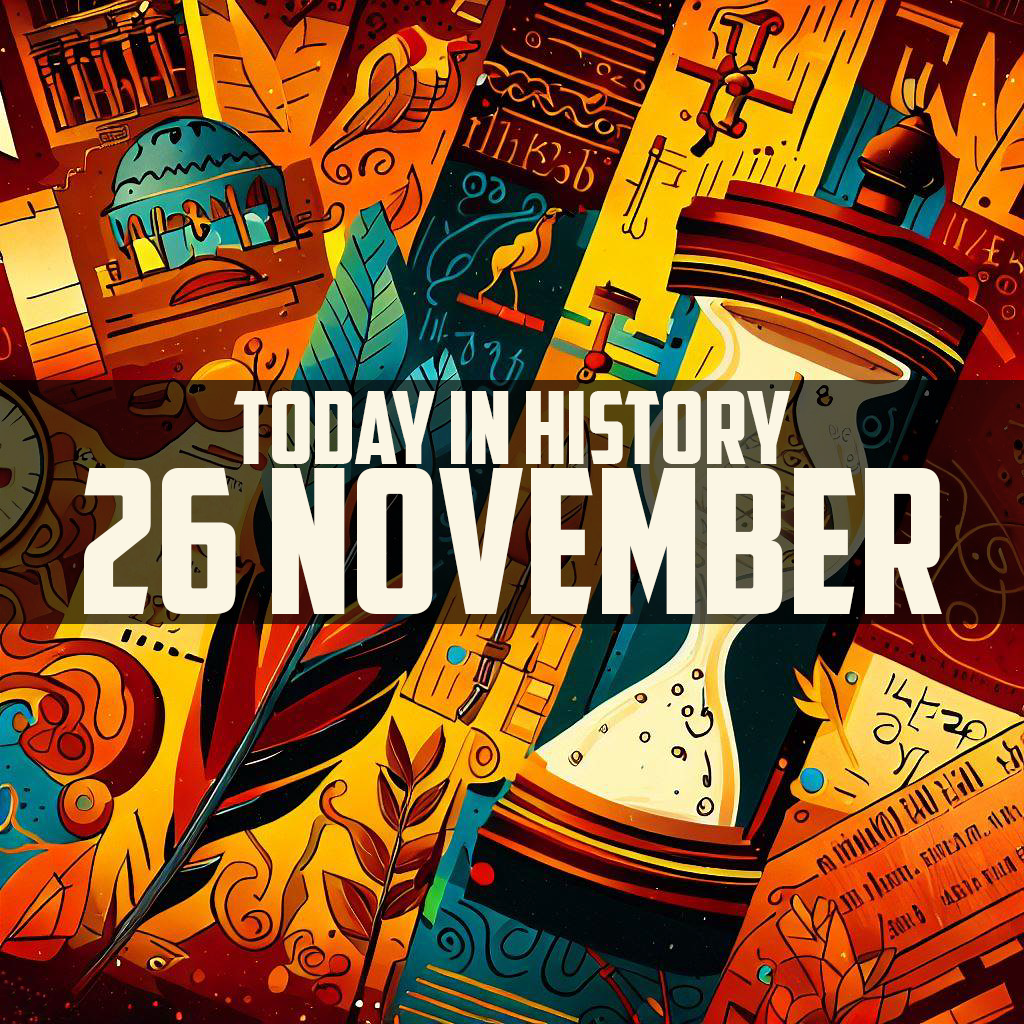November 6th has borne witness to many seminal events, from politics and war to science and culture. The annals of history on this date reveal transformative shifts and milestones that have shaped our present. Here, we explore the events that have made this day significant in various facets of human history.
Today in History: 6 November

1. Politics and Governance:
- 1860: In one of the most pivotal moments of American history, Abraham Lincoln was elected the 16th president of the United States. Lincoln’s victory was instrumental in shaping the trajectory of the nation, especially concerning the abolition of slavery and the Civil War.
- 1917: The October Revolution in Russia culminated with the Bolsheviks, led by Vladimir Lenin, capturing the Winter Palace and overthrowing the Provisional Government. This set the stage for the establishment of the Russian Soviet Federative Socialist Republic and eventually the USSR.
2. World Wars and Military Confrontations:
- 1918: At the end of World War I, the Allies recognized the independence of Poland. This was a key moment in the restoration of Poland’s sovereignty after more than a century of partitions and foreign rule.
- 1942: During World War II, British and Commonwealth forces defeated the Germans and Italians in the Second Battle of El Alamein in Egypt. The victory marked a significant turning point in the North African campaign.
3. Scientific Advancements and Explorations:
- 1861: James Clerk Maxwell presented his set of differential equations to the Royal Society, laying the foundation for electromagnetism’s modern theory. His equations predicted the existence of radio waves before they were discovered.
4. Cultural Moments and Achievements:
- 1528: Shipwrecked Spanish conquistador Álvar Núñez Cabeza de Vaca became the first known European to set foot in Texas. His account of the journey provided valuable insights into the native cultures and geography of North America.
- 1850: Yerba Buena and Angel Islands in San Francisco Bay were reserved for military use, a decision which would influence the cultural and military history of the region.
5. Economic Landmarks and Industrial Breakthroughs:
- 1869: In a key moment for intercontinental commerce, the first train robbery in the U.S. took place near Seymour, Indiana. Though train robberies became more frequent in the Wild West era, this event underscored the challenges of securing transcontinental transport.
6. Moments in Sports:
- 1869: In a testament to the evolving nature of sports, Rutgers University defeated Princeton University in the first official intercollegiate football game.
7. Environmental and Health Milestones:
- 1947: “Meet the Press,” the longest-running television program in history, made its debut. As an influential news program, it has played a significant role in shaping public opinion on various issues.
- 1977: The Kelly Barnes Dam in Georgia, U.S., failed, resulting in the deaths of 39 people. The incident brought attention to the safety and maintenance of dams.
8. Aerospace and Technological Progress:
- 1919: The first flight from England to Australia took off, piloted by Ross and Keith Smith. This was a significant leap in the era of aviation, showcasing the potential of intercontinental air travel.
- 1947: ‘Meet the Press’, the longest-running television program in history, premiered.
9. Literary and Artistic Accolades:
- 1862: Renowned Russian novelist Ivan Turgenev published “Fathers and Sons”. The novel is notable for its portrayal of the nihilist movement and its impact on the generations in Russia.
10. Social Movements and Civil Rights:
- 1975: The Green March began in Morocco. Approximately 350,000 unarmed Moroccans marched into the Spanish-controlled areas of Western Sahara, asserting Morocco’s claim to the region. This peaceful demonstration was a unique approach in territorial claims.
11. Disasters and Tragedies:
- 1934: Memphis, Tennessee, experienced its deadliest fire, resulting in the death of 25 people. The incident led to an overhaul of safety standards in public spaces.
12. Religious and Spiritual Moments:
- 1632: The Battle of Lützen, one of the most significant battles during the Thirty Years’ War, took place. King Gustavus Adolphus of Sweden, a prominent Protestant leader, died in the battle, making him a hero in the Protestant cause.

In sum, November 6th encapsulates the essence of human history in all its dynamism. The events of this day span continents, ideologies, and disciplines. They serve as reminders of humanity’s unyielding spirit, the constant push towards progress, and the invaluable lessons learned from the past. From the political corridors of the U.S. to the battlefields of Europe, from the scientific labs to the vast expanse of the Sahara, this date underscores the interconnectedness of our stories and our shared journey through time.
